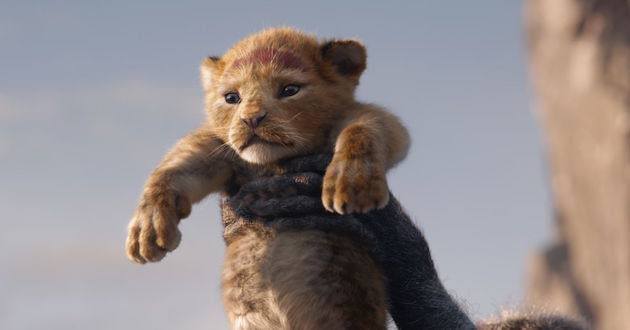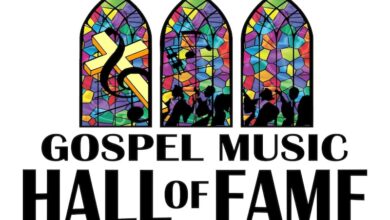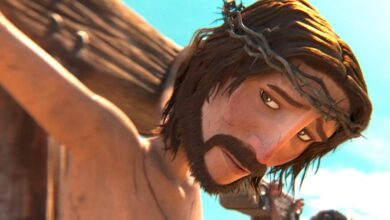Simba and Mufasa return to take viewers on emotional ride

Simba has a lot to learn. And Mufasa, his roaring royal pop and the Pride Lands’ Lion King, is eager to teach him.
Mufasa takes time to help Simba explore the vast African valley that is their kingdom, a land that stretches for as far as the eye can see. He explains important subjects, including things about the balance of large and small, good and evil. Mufasa lays out a tapestry of an ever-renewing existence, birth and death, a circle of life.
Simba hears his father’s words. Some of them he takes to heart. But often, he’s more concerned with the fun stuff of life: romping in tall grass, chasing small birds, rollicking with best bud Nala.
Unfortunately, choosing a steady diet of silly fun over wisdom can sometimes land a young cub in trouble, even if he is the crown prince. It can lead him into threatening shadows and make deadly foes take notice. When a prince doesn’t heed his father’s words he might also find himself misled by those who want to manipulate him.
Simba’s power-hungry and sly-eyed Uncle Scar, for instance, would like nothing better than to quietly deceive a witless cub into being bait in a trap. What kind of trap? It’s a snare made up of sheer cliffs, a narrow gorge, nipping hyenas and stampeding antelope. A trap that might even kill a king, and in turn give power to the king’s wily brother.
And even though that hateful uncle masterminds the whole terrible thing, he’s engineered his plot so cunningly that he can turn to his princely, foolish nephew and exclaim, “Simba, what have you done?!” And, of course, a young purblind cub might be instantly certain that he indeed is the one to blame—running away to hide from the guilt and shame of his deeds.
POSITIVE ELEMENTS
Mufasa strives to teach his young son the importance of respect and wisdom. “A king’s time as ruler rises and sets like the sun,” he tells Simba. “While others search for what they can take, a true king searches for what he can give.” He also talks of their responsibility to protect the Pride Lands, as well as helping his son understand the lion pride’s place in the circle of life.
Mufasa points out the foolishness of Simba’s disobedience and false bravado with the hyenas. “Being brave doesn’t mean you go looking for trouble,” he says, backing up his words with actions. Because when it comes to saving his son, there is no limit to Mufasa’s bravery. (Various other characters throughout the film, including Nala, Simba’s mother and eventually Simba himself all make brave, self-sacrificial choices to protect others.)
RATING: PG
GENRE: Action/Adventure/Kids
CAST Voices of Danny Glover as Simba; James Earl Jones as Mufasa; Chiwetel Ejiofor as Scar; Beyoncé as Nala; Seth Rogen as Pumbaa; Billy Eichner as Timon; John Oliver as Zazu; Alfre Woodard as Sarabi; Florence Kasumba as Shenzi
DISTRIBUTOR: Walt Disney Studios Motion Pictures
IN THEATERS July 19, 2019
Simba’s meets two new friends, Pumbaa (the warthog) and Timon (the meerkat). They teach him the song “Hakuna Matata,” which means “no worries.” That carefree philosophy is in some ways a healthy one, as this pair of friends really doesn’t worry about much of anything. (But I’ll return to this theme later in my review.)
READ: 5 Family Things for July
When Scar takes over as king, he lets the hyenas move into the Pride Lands. The result? The land begins withering, and the herds of other animals are hunted down and chased away. The movie aptly uses that repercussion as a metaphoric illustration of how turning from light-centered wisdom to dark and selfish choices eventually leads to the corruption of everything.
When Simba faces down the evil Scar, the older lion fears that his nephew will kill him. But Simba states, “No, Scar, I’m not like you.”
SPIRITUAL CONTENT
The vast realm of the Pride Lands is permeated by a generic tribal spirituality in many ways. We see it represented by the baboon shaman, Rafiki. He performs several small rituals that involve fruit juice, colored dyes and other bits and pieces of nature. He studies the crawling forms of insects on a tree stump for signs and portents, for instance. And he perceives messages of Simba’s wellbeing and whereabouts that come to him on the wind.
Now, The Lion King is not an intentionally Christian movie. That said, we can still find some parallels between this story and the Christian one. We hear references to the goodness of light versus the corruption of the darkness. We hear about a king’s son “coming back from the dead” to redeem and renew his people. And when a baby Simba is presented to the kingdom, all the animals bow. Much later, a doubting Simba sees a memory of his father swirling above him in the clouds like a heavenly vision. It encourages the young lion to “remember who you are: You are more than you have become … you are my son and the one true king.”
CONCLUSION
There are always going to be some fans left frowning when you make a new version of a classic movie. You may even be dimpling your brow right now over the idea of a “live action” Lion King. That said, let me start by assuring you that this pic’s photorealistic CGI animation and sweeping soundtrack are astonishingly impressive.
After the opening “Circle of Life” sequence soared to a triumphant close, with a cinematic field full of joyously celebrating animals—the whole theater sat in silent awe. And one lone kid down front squeaked out a truly impressed, “Whoa!”
We adults were thinking the same.
However, there’s a caveat built into the film’s immersive imagery. The fact is, that incredible realism comes with some perhaps unintended consequences. Parents need to be aware that in this beautifully realistic mix, bared claws and teeth look far sharper, dark shadows filled with snarling enemies are far scarier. Those roaring, screeching clashes between anthropomorphized beasties can be far more intense and heart-wrenching. And Mufasa’s death scene feels even more tragic and heartrending than it did in the animated 1994 version.
All in all, this prideland morality tale packs the exact same emotional wallop and fable-like lessons of the beloved original. But some sensitive younger viewers may not be prepared for the full impact of this version’s … Whoa!
–Bob Hoose, Pluggedin.com






